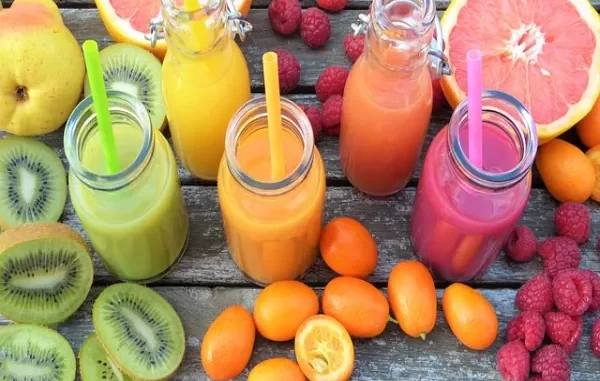
Welcome to the world of juice! Juices have been around for centuries and have become a vital part of our daily diets. There is a wide range of juices available, including orange, apple, and grapefruit juice, each providing their own unique nutritional benefits. Check out some fascinating juice facts you may not be aware of.
10 Surprising Health Benefits of Juicing
Juicing offers a convenient and effective way to incorporate an abundance of vital nutrients into your diet without the need to consume excessive amounts of fruits and vegetables. When done correctly, juicing can deliver a range of surprising health benefits. Discover 10 remarkable advantages that juicing can provide for your well-being.
Juicing has numerous benefits for your health. It can help reduce inflammation, improve digestion, boost your immune system, detoxify your body, aid in weight loss, improve your skin, regulate blood sugar levels, reduce the risk of chronic disease, boost energy levels, and even reduce stress. By incorporating fresh fruits and vegetables into your diet through juicing, you can enjoy all of these health benefits.
The Power of Juice: Discover Amazing Nutritional Juice Facts

Juicing has become more and more popular recently, and for good reason. It’s a great way to pack in all the essential nutrients and vitamins your body needs. While eating whole fruits and vegetables is beneficial, juicing allows you to extract the maximum amount of nutrients from them, making them easier for your body to absorb.
The power of juice lies in its concentration of vitamins, minerals, antioxidants, and other essential nutrients. It’s rich in vitamins A, C, E, K, and the B vitamins. It also provides important minerals like calcium, magnesium, potassium, and iron. Additionally, many juices contain powerful antioxidants that help reduce inflammation and protect your cells from damage.
Some popular juices offer a ton of health benefits. Take orange juice for example, it’s packed with vitamin C to boost your immune system and potassium to regulate blood pressure. Carrot juice is another great choice, as it provides plenty of vitamin A for healthy skin, vision, and immune function.
When it comes to juicing, it’s crucial to choose high-quality produce and use the freshest ingredients possible. Freshly-pressed juices are always best because they retain the most nutrients. And if you’re using a juicer, be mindful of any signs of oxidation, which can decrease the nutritional value of your juice.
In addition to all the nutrition, juicing is a fantastic way to add some variety to your diet. By combining different fruits and vegetables, you can create unique flavors and combinations that you might not have considered before. Plus, juicing makes it easy to incorporate more fruits and vegetables into your daily routine.
As you can see, juicing offers a wide range of nutritional benefits. From vitamins and minerals to antioxidants and other essential nutrients, juicing provides a convenient and delicious way to nourish your body. So if you’re looking to make a positive change in your diet, consider adding some juice to the mix. It could be just the boost you need to reach your health goals.
Unveiling the Juicing Secrets: What You Need to Know About Fruit and Vegetable Juices
Fruit and vegetable juices are essential for a healthy diet and provide an easy way to get your daily vitamins and minerals. However, many people are not familiar with the basics of juicing and may not realize the potential health benefits. In this article, we will explain how juicing works, so you can make the most of this beneficial practice.

Juice is a popular beverage that has been enjoyed for centuries. It is rich in vitamins and minerals, providing various health benefits such as improved hydration, digestion, and immune system support. There are different types of juices available, including cold-pressed and centrifugal options. Cold-pressed juices are made without heat, preserving the nutrients and offering high-quality juice.
Centrifugal juicers, on the other hand, use blades that generate heat and may break down some nutrients. When considering which fruits and vegetables to juice, it’s important to note that most can be juiced, but some, like bananas and avocados, may not produce desirable results. Fibrous produce like apples and broccoli may also cause clogs in the juicer.
Ripe fruits and vegetables have more nutrients and can result in sweeter juice. Fresh produce is typically better than frozen in terms of nutrients. It’s worth noting that while juice is a good source of vitamins and minerals, it is high in sugar and calories and should not be relied upon as a sole source of nutrition. Store-bought juices may also contain added sugars and preservatives, so fresh juices are preferable. By understanding these basics of juicing and using the right ingredients and juicer, you can easily create tasty and nutritious juices for anytime enjoyment.






Leave a Reply